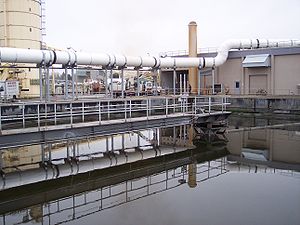
- Image via Wikipedia
We have written before about cities that convert waste to electricity, which is a very smart way for municipalities to achieve their carbon reduction goals. Seattle is one of the cities working on that and since last October, wrote Seattle Times, the city has been producing an average of 5.7 megawatts of power from generators in Eastern Oregon, which are fueled by methane gas produced by a regional garbage landfill.
The project is part of the city’s drive to obtain its energy from renewable energy sources and to comply with Initiative 937, approved by State of Washington voters in 2006. The initiative requires large utilities to obtain 15% of their electricity from new renewable resources such as solar and wind (hydro is excluded) by 2020 with incremental steps of 3% by 2012 and 9% by 2016. It also requires the introduction of cost-effective energy conservation measures. The city expects that by 2012 it will begin to draw power produced with methane gas at another sewage treatment plant where another generator is going to be built.
Renewable energy is a key element in the creation of a carbon-free future and to mitigate the effects of climate change. Earlier this week, Mohammed Nasheed, president of the Maldives, emphasized the issue at the opening of the 3rd World Future Energy Summit in Abu Dhabi, which closed yesterday. The Maldives is a low-lying island nation seriously threatened by rising sea levels.
“We must urgently progress to deploying clean energy solutions and implement energy efficiency decisions to help meet our future energy requirements and address the climate change problem globallyâ€, he said.

![Reblog this post [with Zemanta]](https://img.zemanta.com/reblog_e.png?x-id=337fbc20-e554-4d6c-832b-4fcd06b8316e)





1 Comment